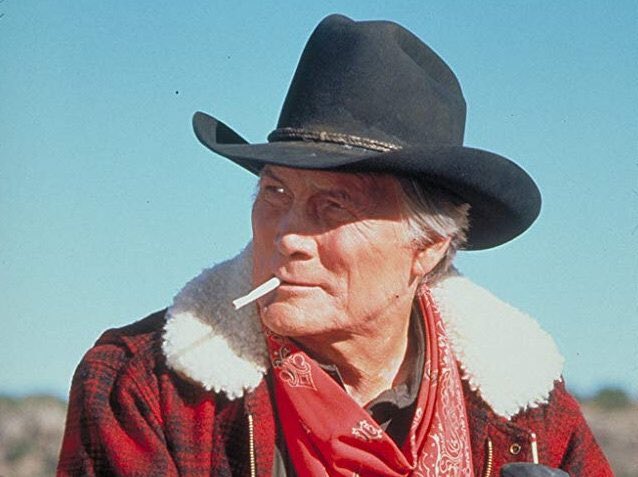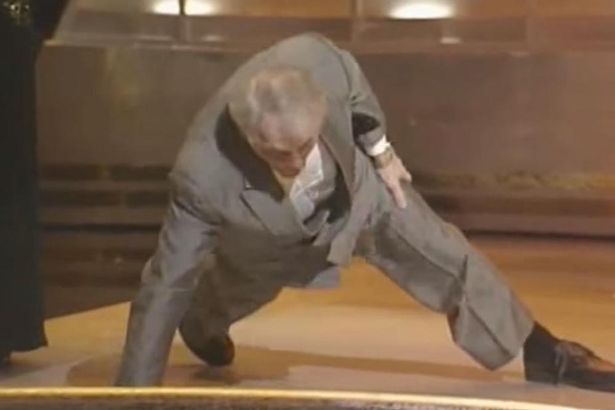Please welcome new contributor Danny Cox.

by Danny Cox
At this moment, the fate of the Best Supporting Actress Oscar is the least settled of the acting categories. Will Jamie Lee Curtis ride the wave of her SAG win? Does Kerry Condon’s BAFTA upset suggest wanting to award at least one actor from the much lauded film? Or does the earliest front runner, the winner of the Golden Globe and Critic’s Choice Award, Angela Bassett rally back around to take home the prize? While there is definitely momentum for both Curtis and Condon, one thing Bassett has over the two of them is a strange parallel to a former win. If Bassett pulls this off, this would not be the first time a highly respected actor gets a late career nomination for a film that is popular with the general public in a category with split competition. Does that sound familiar?
If Bassett wins, it would be Jack Palance in City Slickers all over again. Unexpected comparison I know, but hear me out...
 Jack Palance in City Slickers
Jack Palance in City Slickers
As people attuned to the Oscar’s regular patterns know, it’s common for an actor to win because it’s 'their time'. This may be after a series of nominations and no wins in succession or simply honoring someone that has been around for a while with a spotlight role. It’s the latter case as far as Palance and Bassett are concerned,both nominated early in their careers (Palance for Sudden Fear and Shane, Bassett for What’s Love Got to Do With It) decades before a later career nomination.
Both actors also had career revivals at the time of their nominations. Palance had appeared in three late 80s blockbusters with Young Guns, Tango & Cash, and Tim Burton’s Batman leading into the hit comedy City Slickers. This past decade has provided a major boost for Bassett with her recurring presence on television in the various American Horror Story seasons, her leading role in 911, and Emmy nominated turns in Master of None and The Black Lady Sketch Show. She has also had standout moments in widely seen and respected movies with Mission Impossible: Fallout, Pixar’s Soul, and the triple Oscar winner Black Panther. The collective nostalgia and reenergized appreciation for a career combined with a sense of simply wanting to award a particular person likely helped Palance pull off his win and may be a good sign for Bassett.

The narrative around a performer is key, but that narrative is nothing without the floor to stand on and there are some surprising similarities to Palance’s Curly and Bassett’s Ramonda. Both are true supporting performances: only in a few scenes but making the most of their moments. In each film they are the characters who leave the most impact, Curly imparting life wisdom to Billy Crystal’s character and Ramonda having the big “have I not suffered enough?” speech that stops the film cold in the best possible way. They come in at the center of the movie, pull all the gravity to them, and to make their roles yet more impactful: they die. A simple but effective emotional tug at the heartstring, kill the supporting character and give more weight to that character for the rest of the film and the performance itself.
City Slickers then and Black Panther Wakanda Forever now were also huge hits outside of Oscar discussions. They are the kinds of films that voters were likely to see without the pretense of award season. That the performances were nominated at all suggests they truly resonated with audiences and might, too, with voters.
Often when the Oscars take a swing and nominate an actor in a not so typical “Oscar film,” the nomination is considered the reward. Examples include recent nominations for Robert Downey Jr. in Tropic Thunder and Melissa McCarthy in Bridesmaids. However, in these specific cases the other nominees in the category may have lead to an even less typical breakthrough. Palance’s fellow nominees in 91 were: Tommy Lee Jones in JFK, Harvey Keitel and Ben Kingsley in Bugsy, and Michael Lerner in Barton Fink. To openly speculate for a moment, Lerner represented a critically respected film that didn’t make much of an impact at the box office (and only received to other nominations in the craft categories) and both being in same film likely split some voting between Keitel and Kingsley. This was the first of Jones’s four Oscar nominations and is notable for standing out in such a crowded cast. Whether it wasn’t a big enough part or possibly some backlash to the controversial film itself, Jones did not prove to be competition for Palance. This year, Bassett is also up against two actors from one movie (Curtis and Hsu, Everything Everywhere All at Once) and two first time nominees, one from a very popular film (Condon, The Banshees of Inisherin) and one in a divisive film (Chau, The Whale.) Like Palance, the odds are not actively working against Bassett which may help her to pull her forward simply as the consensus choice.
Some Oscar wins seem obvious from the start and plow through award season to the Oscars with no real challenges, while others only become clear in hindsight. The other acting categories this season have mostly settled into “one or the other” prospective winners, but Best Supporting Actress has potential for a surprise. With no clear frontrunner the Oscars may want to reward the long overdue favorite in a popular film when there’s no other clear winner in the category. Looking back at the Oscars, patterns tend to emerge, some of which may feel like cliches, but often give some insight into how the Academy thniks.
Much of the discussion around Bassett’s nomination is how it is the first time someone from a Marvel film has been honored in an acting category. This may seem strange to some, but it would be wrong to fully count her out when Jack Palance won for a Billy Crystal comedy.
What this writer wants to know is: should Bassett win, will she do push ups on stage? (Probably not but wouldn’t that be fun!)
 Palance doing push-ups on the Oscar stage
Palance doing push-ups on the Oscar stage
Danny Cox (he/him) is a "writer" but is working on building enough self confidence to remove those quotation marks. He graduated from Southern Illinois University Carbondale with a bachelor's in Cinema/Photography (with a lovely minor in theater.) His most recent publications can be found on Collider, but largely practices fiction writing for both the stage and screen. His short play Old Arnold was published and performed by Actor's Theater of Louisville in 2012, and has given him hope for a career in writing ever since. Danny is currently based out of Los Angeles.